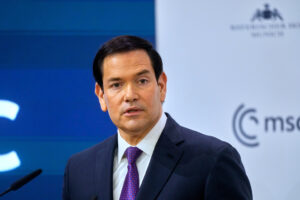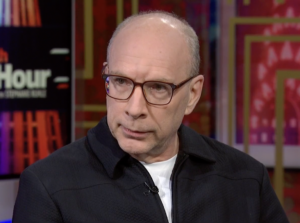One in Three Native American Women Report Rape – Rarely See Justice

Image from Native American Women’s Health Education Resource Center “What to Do When You’re Raped: An ABC Handbook for Native Girls” via free download.

In April, Joseph Dean Lee was sentenced to 9 years in federal prison for sexually assaulting a Native American woman on the Fort Peck Reservation in Montana. Although Lee will serve time in prison, often those who rape Native American women are never brought to justice.
One in three Native American women will report being the victims of attempted or completed rape, according to Amnesty International and the U.S. Department of Justice. In comparison, one in six women nationally will be victims of attempted or completed rape. This devastating statistic means that Native American women are more likely to be victims of rape than any other race in the United States.
For Native American women who report their assault, their plight is mostly unheard or ignored. In 2012, the New York Times reported, “Nationwide, an arrest is made in just 13 percent of the sexual assaults reported by American Indian women…compared with 35 percent for black women and 32 percent for whites.” In 2007, for example, the Navajo Nation reported 329 rape cases among their small population of 180,000. By 2012, only 17 of these cases resulted in an arrest.
If this sounds like an injustice, it’s because it is.
Lee’s conviction is therefore a rare instance of justice for Native American victims of rape.
Lee’s victim, “J.D.”, or Jane Doe, as the court dockets named her, was an ex-girlfriend of Lee. Lee, who did not reside on the Fort Peck reservation, arrived drunk at J.D.’s house at 3:00 a.m. on the night of January 28, 2015, and forced himself upon her. While the attack was occurring, J.D. dialed 911 and reported the rape herself. The combined efforts of the FBI and the Fort Peck tribe investigated the case and arrested Lee. DNA evidence was used to prove his guilt and on April 19, 2016, Lee was convicted.
Native American reservations are for the most part self-governed and have either their own police, or police provided by the Bureau of Indian Affairs. Tribal police have the authority to arrest and convict Native Americans who commit any crimes on reservation land, as well as non-native Americans who commit civil crimes on reservation land.
Tribal police, however, do not have the authority to arrest non-Native Americans who commit a sexual assault or any other major crime on the reservation. In this instance, the FBI must be called to investigate and make the arrest. In Lee’s case, the FBI and tribal police worked together to bring him to trial.
These circumstances which led to Lee’s conviction are, unfortunately, unusual. When a non-Native American commits a crime on a reservation, too often the case is dismissed due to jurisdictional confusions. To complicate matters further, if a Native American is raped on a reservation and doesn’t know if the perpetrator is Native or non-Native American, his or her case can fall into a jurisdictional void.
If a Native American is the assaulter, this doesn’t necessarily mean that prosecuting will be easier. Tribal police are often crippled by a short-staffed force as well as low-budgets. Kristen Ruppel, Professor of Native American Studies at Montana State University, said “Tribes usually don’t have the economic wherewithal to actually pursue the cases that they do have jurisdiction over.” Montana Wilson, former tribal prosecutor of the Fort Peck Reservation, stated that in one year he was prosecuting over 600 cases.
Without the legal authority to prosecute non-native Americans nor the budget to prosecute Native Americans, Native American rape victims are not granted the justice they are owed.
This legal disparity could become even more drastic, depending on the outcome of the Supreme Court Case, Dollar General Corporation v. the Mississippi Band of Choctaw Indians. The case is currently disputing tribal courts’ ability to exercise jurisdiction over non-Native Americans in civil cases.
According to the case briefing, in 2003 a 13-year old was reportedly sexually molested by the manager of a Dollar General. The store was on the Mississippi Choctaw reservation, but operated by a non-Native American manager. Due to the tribal courts’ restriction in prosecuting non-Native Americans in their criminal courts, the victim and his family brought civil claims against the employee and the Dollar General. The Dollar General Manager refused to pay for damages and has thus far contested the charges four times. The case is currently being processed by the Supreme Court.
The manager argues that the tribal courts should not have the civil jurisdiction over non-Native Americans on reservation land. Whereas the victim and his family hope to seek some sort of civil justice for the assault experienced, since criminal compensation cannot be pursued through the tribal courts.
If the Dollar General Manager wins, the case could set a dangerous precedent which further disempowers Native American tribal courts. If the victim wins, at least civil jurisdiction of tribal courts over non-native Americans will be maintained.
This case, as well as others concerning the sexual assault of Native Americans, receives little media attention. Calls for Native American rights fall upon deaf ears by even those highest in power. President Obama was only the fourth President to visit a reservation since American independence. That means more American Presidents have visited Finland than a Native American reservation.
Of the formerly five competitive presidential candidates, only two even mentioned Native American rights on their campaign websites. Hillary Clinton’s agenda vows to remove obstacles that contribute to “addiction, high unemployment and poverty rates on many reservations.” Bernie Sanders was a cosponsor of the 2013 Violence Against Women Reauthorization Act, which gave tribal courts jurisdiction over non-Native American perpetrated rape cases when the perpetrator is in a relationship with the victim. Meanwhile Donald Trump, Ted Cruz and John Kasich’s campaign pages had no mention of Native American rights.
In freshman year, students are instructed to look to the person to left, and then to the person to their right. They are then told sternly by their professor that one of the three of them will drop out by sophomore year. One in three. If this number sends chills down the spines of students and parents alike when thinking of college dropout rates, how can this not but incite a sense of horror when referring to the rape of Native American women? One in three Native American women report being raped, and yet, calls for justice are not answered.
Clare Church is the Editor-in-Chief of JPI and a M.A. Candidate in International Relations and Journalism at New York University. She completed her undergraduate degree in History and Political Science at the University of Waterloo. Her research areas of interest include indigenous issues, resistance studies, and human rights.





Sexual violence against aboriginal women is indeed an important issue that needs to be addressed.
It seems to me that much of the concerns you have identified regarding sexual violence against aboriginal women is an echoing of a 2014 article by Kelly and Smith. See:
Sexual Violence in Native American Communities
J Kelly, RA Smith – 2014 – academiccommons.columbia.edu
The point of course is well made however, the one in three figure is somewhat debatable.
Even David Finkelhor suggests statistics on sexual violence regarding first nations women requires considerable refinement. (see 2015 Finkelhor article on improving sexual assault figures among aboriginal women.)
Clare:
You have indeed identified an important issue. Efforts to address sexual violence against aboriginal women must be more resourced and focused. Your concerns appear to echo work done by Kelly and Smith in 2014. See:
Sexual Violence in Native American Communities
J Kelly, RA Smith – 2014 – academiccommons.columbia.edu
The major point is well made but the statistics used can be questioned. Even David Finkelhor argued in a 2015 article that figures used regarding sexual violence against aboriginal women needed considerable refinement. The one in three figure cited is highly questionable